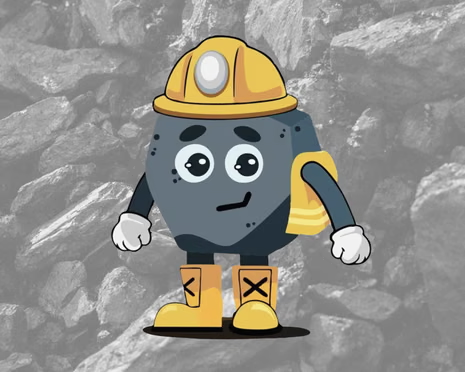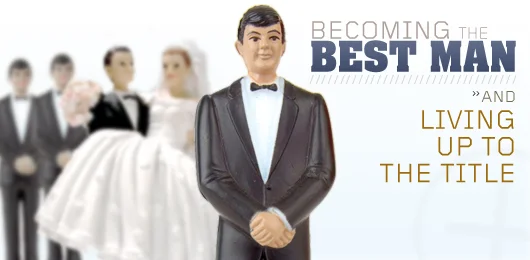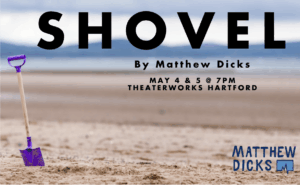More than a decade ago, I was officiating a wedding for a couple at a cabin on a campground in Maine.
I’d call her a friend, but until I arrived in Maine, we had never actually met. She had read my novels, connected with me online, and eventually became part of my world.
After marrying the couple on the edge of a lake, a party began that lasted all night. Part of the festivities included a demonstration of a fire swallowing by one of the couple’s friends. When I learned about what would be taking place, I grew concerned.
Fire swallowing? Here? Miles upon miles from the nearest hospital? In the middle of the Maine woods?
I found the fire swallower. I asked if she was really going to swallow fire or if some kind of illusion was involved.
She assured me that she would be swallowing fire. She explained that just before swallowing the fire, she would coat her mouth and throat with a jelly-like substance to protect her skin when the fire entered her mouth. She’d done it many times. She wasn’t a professional, but it was a party trick she performed often.
“Can it go south?” I asked.
“I’ve burned my mouth and tongue before,” she said. “Sometimes pretty badly. But I’ve never hurt myself badly enough to need the hospital or a doctor.”
“But could it happen?” I asked.
She smiled and told me that anything was possible.
An hour later, I stood behind the cabin with the rest of the wedding guests, ready to watch this woman swallow fire. I looked into the faces of everyone around me.
Not a hint of worry or concern.
All smiles.
Joyous anticipation.
I was terrified.
Ever since that night — more than a decade ago — I have wondered why I was the only person at that party who was worried about the safety of the woman preparing to swallow fire. To say that the question has plagued me over the years would be an exaggeration, but not by much.
I have wondered about the answer to that question again and again and again over the years.
Yesterday, it finally hit me. While coming down a flight of stairs in the Peabody Museum in New Haven, Connecticut, I saw a woman slip on a stone stair and begin to fall. She caught the railing as she began to topple and managed to regain her balance, but for a second, I had already started to move, thinking about all the possible injuries that I might be contending with at the bottom of the stairs.
That’s when I knew. Right there on those stairs.
I was worried about the fire swallower because I always feel responsible in every situation. Even though the museum was full of visitors and employees, I instantly assumed that I would be responsible for that woman’s medical care until an ambulance arrived.
I always make this assumption.
On those stone steps, the reason why was clear as day.
I grew up as the eldest of three children and later five when my mother remarried. I grew up in a time — the 1970s and 1980s — and in a family where children were often running free, unattended, unwatched, and seemingly forgotten. Every day, I felt like the safety and happiness of my brothers and sisters were entirely my responsibility.
As a Boy Scout, I was a patrol leader at an early age and quickly rose to the level of Senior Patrol Leader. Day after day, younger boys looked to me — just a year or two older than them in many cases — for help with homesickness, cooking, shelter, and more.
I spent my boyhood days constantly looking out for people younger than me. I was a boy forced to assume responsibility for others at a very young age.
When I turned 16, I was hired to work at McDonald’s, and within six months, I was promoted to manager when most of my friends were goofing off, skipping shifts, and laughing the day away. While they were high school students with part-time jobs, I was calculating food costs, monitoring service times, and hiring and firing people twice my age.
I was in charge. When the most important supervisors and corporate wonks from the regional office would come to our restaurant, I was assigned to run the shift because I understood how to be in charge. I knew how to assume responsibility for everyone and everything in the restaurant, even when I was still in high school.
Since graduating from high school, I have lived every waking moment without a safety net. I left home at 18 with no family or childhood home to return to. No financial support and no guidance of any kind.
I was entirely responsible for myself.
Somewhere along the way, probably as a boy, but maybe later in life, I began assuming responsibility in every situation. In every emergency, I always assumed I needed to take charge and lead the way. I would be the one capable of seeing the pitfalls, dodging the perils, and contending with disaster.
On those steps in the Peabody Museum, I saw flashes of moments from my life when something unfortunate, terrible, or disastrous happened, and I ran into the fray.
Someone is hurt. A fight has broken out. A child has gone missing in a crowd. A motorist is in trouble. Someone is choking. The line isn’t moving. Confusion reigns.
In each instance, I ran into the fray and attempted to take charge, not because I thought highly of myself or believed that only I could save the day, but because I thought it was my responsibility. I assumed that I was supposed to be in charge.
I was worried about the fire swallower that night because if something went wrong, I assumed — rightly or wrongly — that I would be the person dealing with the problem.
In every situation, I am always responsible.
I don’t know if this ingrained belief is a good thing or a bad thing, but it took me a decade to understand it. It took more than ten years for me to figure out why a late-night party in the Maine woods has remained so ever-present for so long.
Watching a woman stumble on the stone steps of a museum, I finally understood why.
This is what happens when you’re curious about yourself. It is what happens when you are self-centered in a positive way, meaning you afford yourself time to think about yourself.
This is what it means to be a storyteller.
Whether you tell stories on stages or pages or only to yourself, this is what it means to live the life of a storyteller.
Storytellers seek to understand themselves. They refuse to ignore those nagging questions. They never look away from the lingering moments of the past. They never stop seeking an answer.
A storyteller spends their life rowing a boat — constantly moving forward while always looking back.
The fire swallower swallowed her fire without a problem that night. When I asked her later how it went, she told me that she’d burnt the roof of her mouth a bit, but only in the same way you might burn your mouth on a baked potato.
“No biggie,” she said.
It turned out to be a biggie for me, though. A decade-long question finally answered with a new understanding about myself and how I’ve lived my life. I’m not sure what I’ll do with this newfound information yet:
Continue on as I’ve always lived or seek to course correct?
That will be the next question in need of answering:
Is it okay for me to assume responsibility in every situation, or should I find a way to relinquish this burden?
I’m not sure. It might take me a decade to figure this one out, too.
But I’ll keep rowing my boat forward fairly relentlessly while keeping my eye on where I have been, what I have done, and what I am still wondering.







